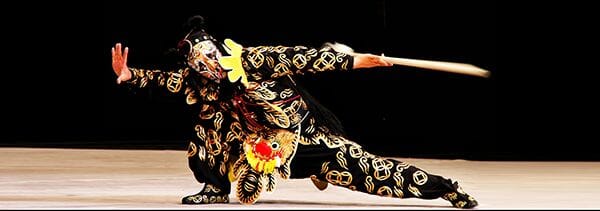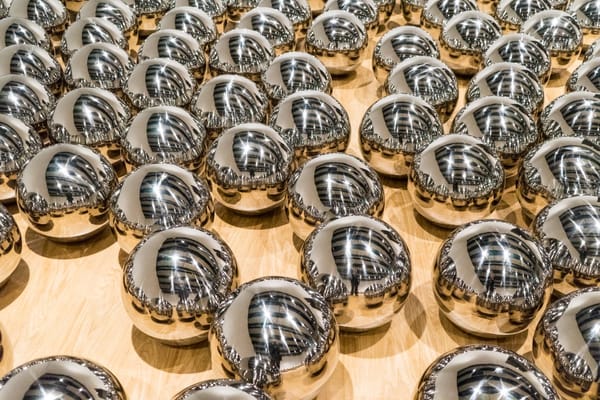White Teeth

When White Teeth was published back in 2000, by a hitherto-unknown, fresh-out-of-Cambridge Zadie Smith, it added a fresh perspective to the gathering conversation about Britain’s cultural diversity. Smith was different because she actually grew up in the melting pot of race, religion and culture in Willesden, as a half-Jamaican, half-white youth. Her novel doesn’t stray far: set in the same area, White Teeth follows the families of two men – one Bangladeshi, one English – who had become best mates after fighting in the war together.
It is thus significant that the first stage adaptation of White Teeth was presented at the newly-refurbished Kiln Theatre (former Tricycle Theatre), in the heart of Kilburn. The raucous Kilburn High Road of the play, cartoonishly reconstructed on stage by Tom Piper, is the very street on which the theatre stands. The play is filled with bold, bright characters that strut across the stage, bumping into each other, interacting – preserving the chaotic diversity that is central to its theme.
In the midst of the stories of the two families lies a commentary on Britain’s relationship with the diverse cultures that have made her their home, each changing, and being changed, by the other. The play uses the disillusioned dentist Rosie, who is sent into a coma-dream by the “local fruit-and-nutcase” Mad Mary via an anaesthetic overdose, to explore her mother Irie’s past and the mystery of her father’s identity. Irie, the daughter of a Jamaican mother and English father, grew up with the Bangladeshi twins Magid and Millat Iqbal in multicultural Willesden. The twins’ father, Samad, is a devout Bangladeshi Muslim who felt his faith slipping away from his children’s lives. He sends Magid back to Bangladesh in an attempt to remedy this, and the twins follow vastly different paths; Millat in London becomes involved with the militant fundamentalist Islamic brotherhood KEVIN, while Magid in Bangladesh pledges his life to science and, specifically, genetic engineering.
White Teeth has a mind-boggling number of characters, each with their own story that intertwines with the others, crossing over in a multitude of ways that bring out both clashes of cultures but also the amalgamation of different practices that is unique to London. As a Londoner watching the play, one is often tickled by the references to the diversity we take for granted – such as the Irish pool hall, O’Connell’s, that Samad and Archie frequent, which is run by Arabs and does not have any pool tables.
The play is peppered with Paul Englishby’s feel-good tunes, with colourful Hairspray-esque mass choreography. There is a particularly impressive sequence in a hot pink hairdresser’s as pink characters swivel around and sing about Irie’s wish to straighten her Afro curls. The small acoustic band plays live for the songs, with the musicians occasionally participating as side characters. Some have said that the conviviality of the show masks some of the subtleties of Smith’s story. Indeed, without a narrator to tie the multiple threads together, the play can seem unfocused. Perhaps it has sacrificed some nuances for a relatable, generally feel-good production, but it is enjoyable in the way a West End musical is enjoyable – a visual feast presented by an impressive cast, built on a conversation about cultural diversity so relevant in Britain today.
-4 stars







